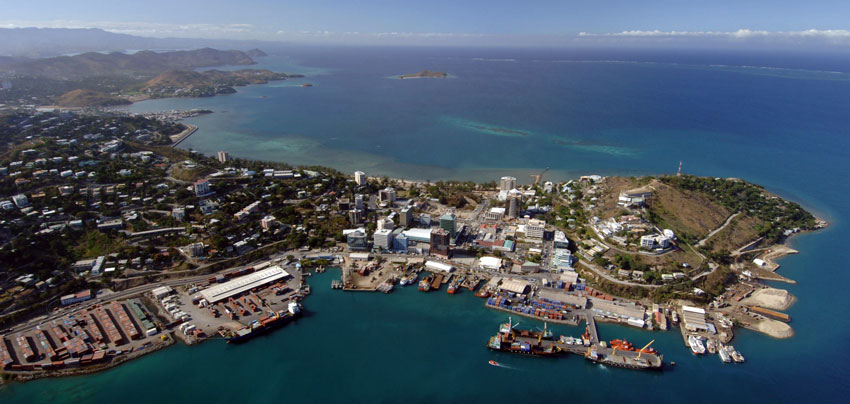
Illegal logging and deforestation continues in Papua New Guinea (PNG) under the failed Special Agriculture and Business Lease (SABL) concept, while indigenous landowners continue to cry foul on a deaf government.
That’s the reality in PNG, according to Oro Governor, Gary Juffa in an exclusive interview with PACNEWS recently.
Since the tabling of the Commission of Inquiry (COI) into the SABL in October 2013, Prime Minister Peter O’Neill promised in Parliament that the reports were to be made public, and action would be taken immediately.
Based on the findings and recommendations of the reports, Peter O’Neill himself labeled the SABL scheme as “a total failure to landowners” that involved a lot of illegalities, and later told Parliament that his government will act on the matter as soon as possible and return land titles to local landowners.
But to date, Governor Juffa says the promises by the Prime Minister are not forthcoming, while many of the cases highlighted in the inquiry reports continue to carry on their illegal operations while landowners remain voiceless.
“As the governor of Oro, I have managed to address illegal SABLs operating, and my office had ensured that land titles were returned to the rightful landowners,” said Juffa.
“A ministerial taskforce committee will be appointed to look into the findings and recommendations of the Commission of Inquiry and will report to Parliament,” said O’Neill when presenting the reports in October 2013.
Governor Juffa argues that the status of the ministerial committee is unknown even though public funds were pumped into the committee, and as a result, civil society organizations, landowners, and the public are still questioning the task of the committee.
On the other hand, Alois Jerewai (one of the commissioner who failed to hand in his report to Parliament) gave his reasons for failing to meet the deadline set by the Prime Minister in 2013, adding that the COI was under-funded and it is reflected in the serious qualification to the COI report.
“The Commission of Inquiry into the SABL received only K7 million (US$2.4 million) out of the K15 million (US$5.2 million) that the Prime Minister said it spent on this inquiry…I want to know where the other balance of K8 million (US$2.7) was spent. It certainly was not spent on this COI,” said Jerewai in a media interview in 2014.
The respective inquiry reports compiled by Chief Commissioner, John Numapo, and Commissioner, Nicholas Mirou, found that there was widespread abuse, fraud, lack of coordination between government agencies, failure and incompetence of government officials to ensure compliance, accountability and transparency within the SABL process.
Juffa added that the reports highlighted that throughout the course of the inquiry, serious allegations were leveled against officials and senior government bureaucrats involved in the management of SABL, with bribes and inducements being offered by project developers and representatives of landowner companies to procure SABL titles.
“I don’t understand why the Prime Minister is sleeping on this issue…it maybe that he has some personal interest, or there is fear that logging companies will take the state to court regarding the issue,” said the Governor.
He said there is clear evidence based on the inquiry of undue political pressures being put on government officials by senior Ministers and politicians to fast-track SABL applications and issue titles. Incidences of political interference were numerous and were reported in respective individual SABL reports.
The reports overall findings pointed out that there was corruption and mismanagement, and lack of coordination by key agencies including departments of Lands and Physical Planning, Environment and Conservation, Agriculture and Livestock, Provincial Affairs and Local Level Government, Investment Promotion Authority, PNG Forest Authority, and the Forest Clearance Authority. The reports stated that the entire land management system in PNG is in a mess and recommended that the SABL process should be done away with or a workable policy be formulated on SABL that benefits local landowners.
Juffa says he hopes SABL doesn’t become another issue that the Government sweeps under the carpet.
